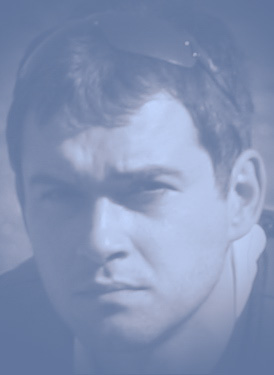
Author's Biography
Alexander Dunlop Lindsay (GBR)* 14.05.1879† 18.03.1952 (72 years old) Author's Homepage Alexander Dunlop (Sandy) Lindsay was born in Glasgow, Scotland, on 14th May, 1879. Educated at Glasgow University he obtained his first degree in classics in 1899. He then won a scholarship to University College, and as well as getting a double first was president of the student union. Lindsay taught philosophy at Glasgow University (1902-1904), Edinburgh University (1904-09) and at Balliol, Oxford. Along with his friend, William Temple, he became a tutor at the Workers' Educational Association. During the First World War Lindsay served in the British Army and in 1917 was promoted to deputy controller of labour in France. After the war Lindsay was professor of moral philosophy at Glasgow University before returning to Oxford University. A socialist, Lindsay became a national figure in 1926 when he joined with William Temple in urging the government to seek a negotiated agreement to the General Strike. One of his students, Christopher Hill, later argued: "His influence on students between the two world war wars was incalculable, and time and time again he gave a lead where few others in university circles did - in attempting reconciliation during the general strike." Edward Heath was one of the students deeply influenced by Lindsay: "Although Lindsay's own principles were strongly social democratic, he was completely non-dogmatic and non-doctrinaire both in argument and in deed. He believed that democracy alone, and the freedom of expression it underpinned, could give each individual the chance to live his or her own full life. Lindsay had more influence on me at Oxford than anyone else. Ironically, by hastening my intellectual development, this great socialist probably strengthened my innate Conservatism: and the more I exposed my instinctive political views to intellectual questioning, the more solid and rigorous their foundations became." An educational adviser to the Labour Party, Lindsay was chairman of the National Council of Social Service. He was also involved in setting up several unemployment clubs and was vice-chancellor of Oxford University (1935-38). Denis Healey knew him during this period: "He was a tall, shambling, bear of a man. Wisps of white hair floated round a large innocent pink head. He lectured in a light, sing-song voice, twisting the ends of his gown in front of him. As the first confessed socialist to head a college in Oxford, he was regarded as a dangerous revolutionary by many of his colleagues, particularly when he stood as the Popular Front candidate in the 1938 by-election. Nowadays he would be regarded as a left-wing liberal." Lindsay, a strong opponent of appeasement, he stood as the anti-Munich candidate in the by-election that took place in Oxford in October, 1938. Although defeated by the Conservative Party candidate, Quintin Hogg, he reduced the majority from 6,645 to 3,434. On the outbreak of the Second World War Lindsay became chairman of the Joint Recruiting Board, with the task of allocating conscientious objectors to work of national importance other than military service. He also played an important role in organizing education for the armed forces. As well as being a regular contributor to the Manchester Guardian he wrote several books including The Philosophy of Bergson (1911), The Philosophy of Immanuel Kant (1913), The Essentials of Democracy (1929),Kant (1934), The Modern Democratic State (1943) and Religion, Science and Society in the Modern World(1943). He was created 1st Baron of Lindsay of Birker of Low Ground by Clement Attlee on 13 November 1945. Alexander Dunlop Lindsay died on 18th March, 1952. His son, Michael Lindsay, a specialist in Chinese economics, succeeded to the title and became the 2nd Baron of Lindsay of Birker. Source: http://spartacus-educational.com/PRlindsayAS.htm |
